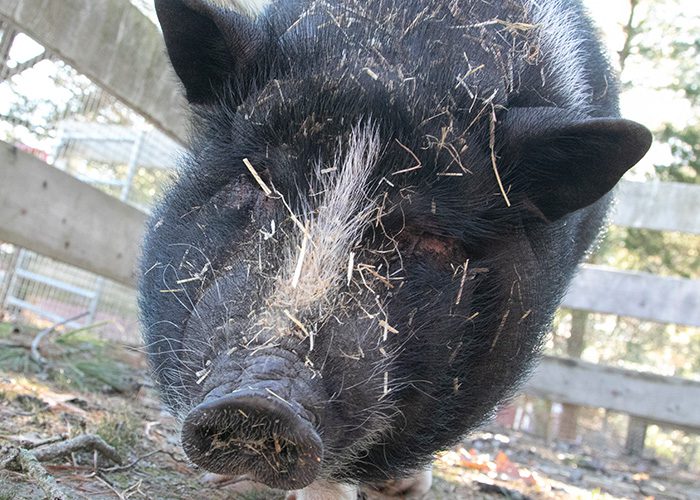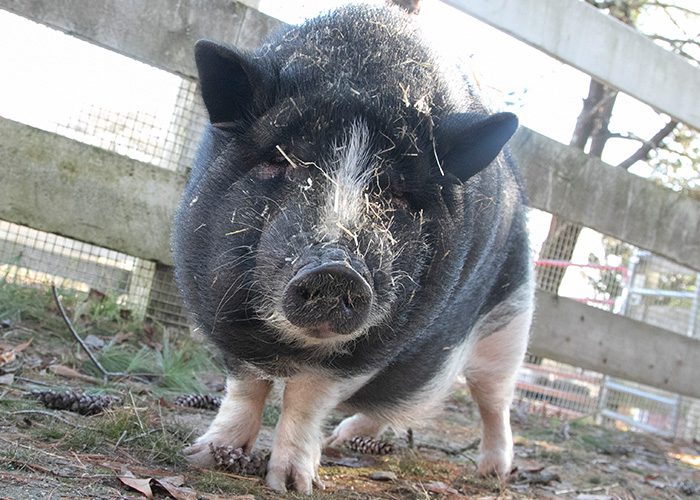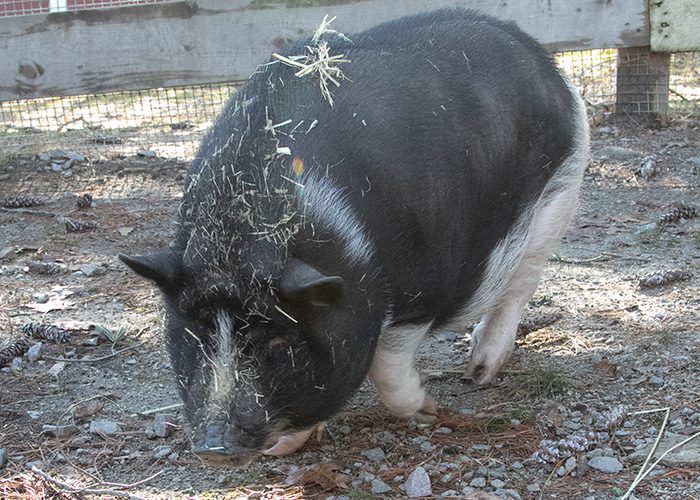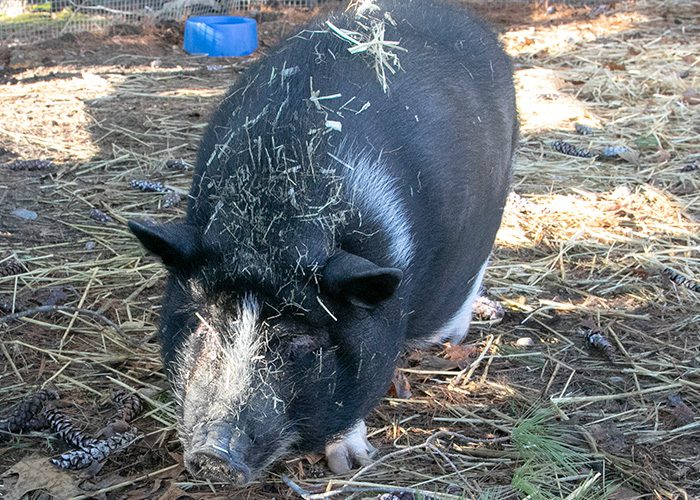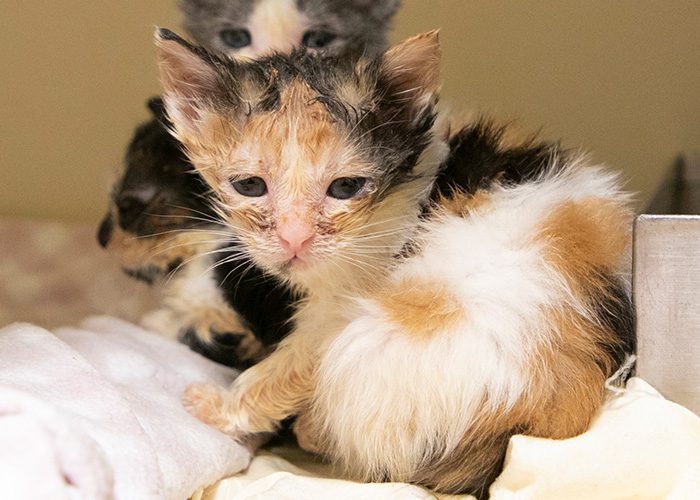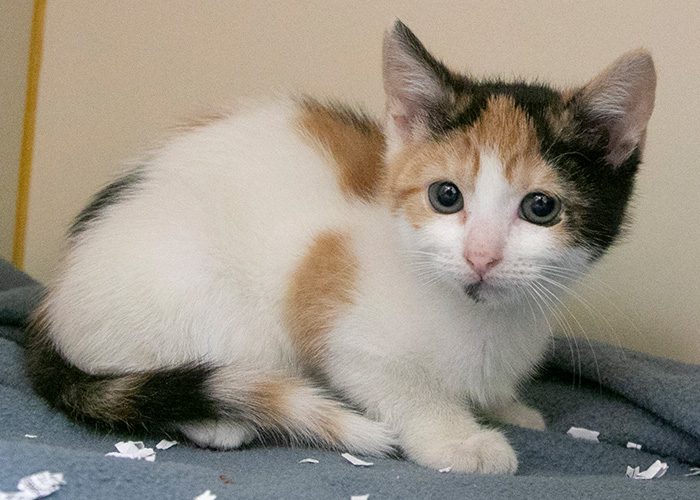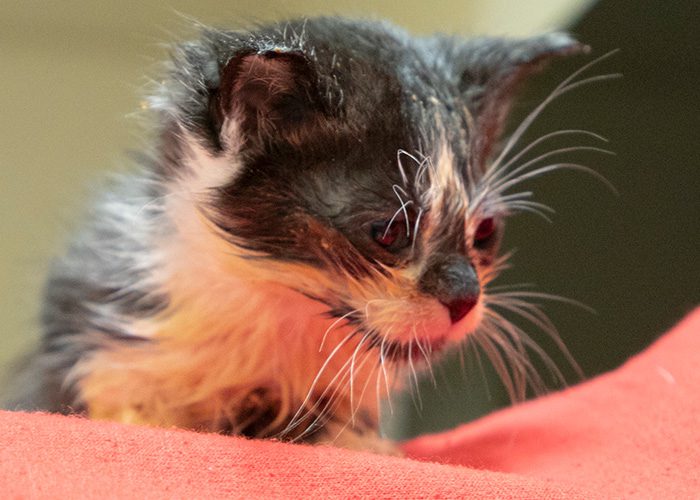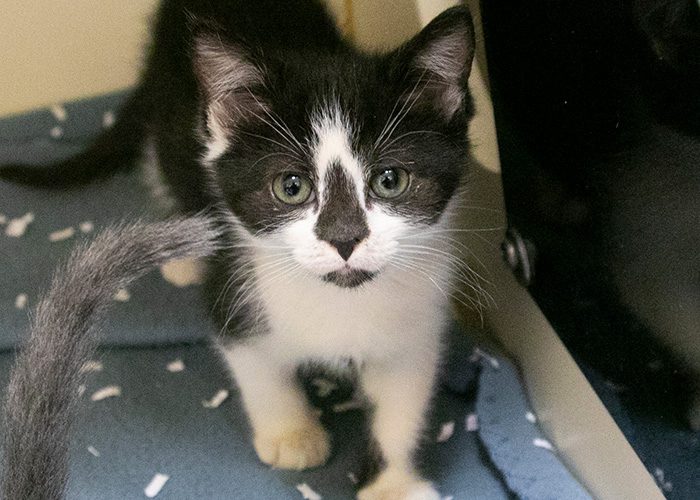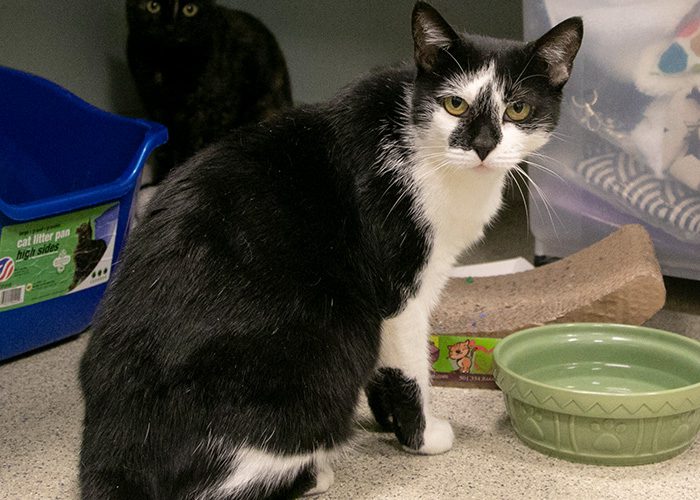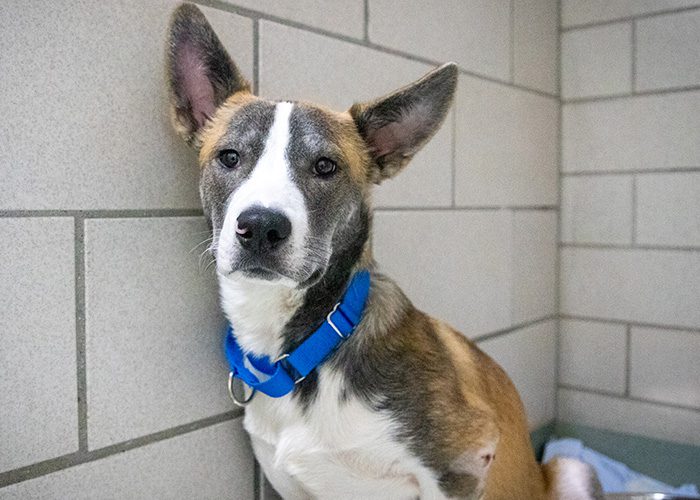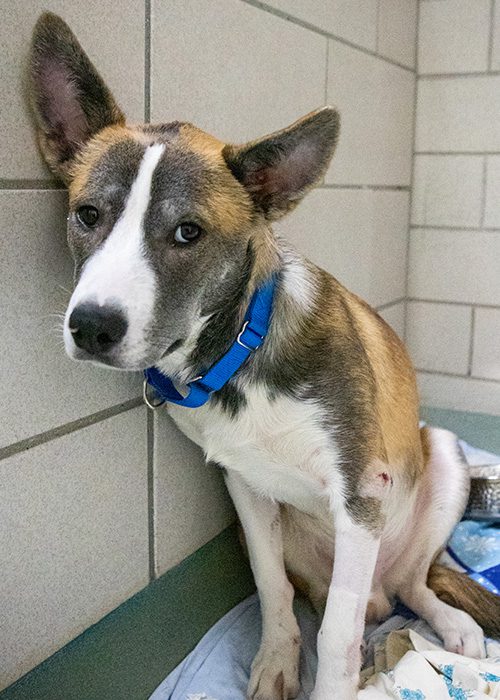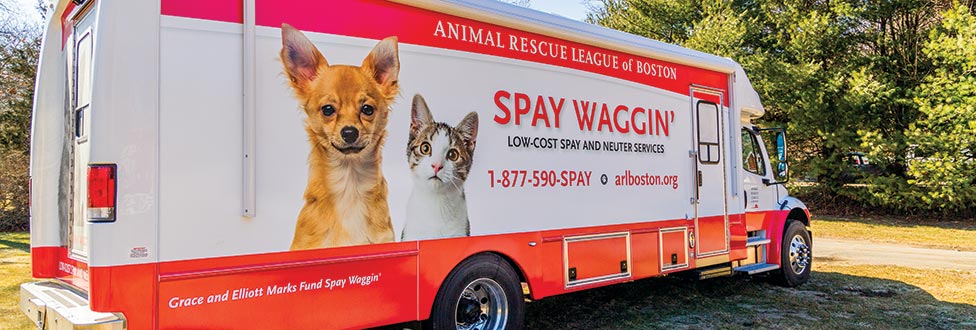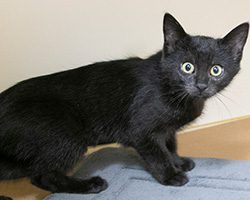Overweight Pig Looking for New Home to Start 2024
Overweight pig has been in Care of ARL since October
A four-year-old overweight pig currently in the care of the Animal Rescue League of Boston (ARL) is looking to kick off the New Year on the right hoof by finding her permanent home.
The young potbelly pig came to ARL approximately 30-35 pounds overweight, and with weight-related mobility and emotional issues, but has made tremendous strides in the past two months.
The pig, named Nala, was surrendered to ARL’s Dedham Animal Care and Adoption Center in October, when her owner could no longer care for her.
Nala originally came from a cruelty case in Ohio as a piglet, and was an indoor/outdoor pig in her previous home.
Due to her weight gain, Nala was uncomfortable upon her arrival at ARL, and had limited mobility.
Her discomfort also impacted her behavior and she was closed off and did not want contact initially.
However, as she began to lose weight, her mobility improved, as did her behavior.
A slimmed down Nala can now be seen moving freely throughout her paddock and she has also begun welcoming interaction, allowing pets and showing off her sweet and tender side.
While she has lost some weight, her new owner will need to help Nala continue her weight-loss journey, but ARL feels she is now physically and emotionally ready to find her forever home — just in time for the New Year!
Help an Animal Like Nala
When you make your year-end gift today, you can help make sure animals like Nala get everything they deserve this holiday season.
Your generosity means you can be there for animals, every step of the journey home, as long as it takes.
From transports from overcrowded shelters or emergency rescues, to veterinary care, enrichment and behavior training, and finally adoption – you make it all possible.
2,839+ animals in need have already found homes this year. Will you make a year-end gift to help one more?


